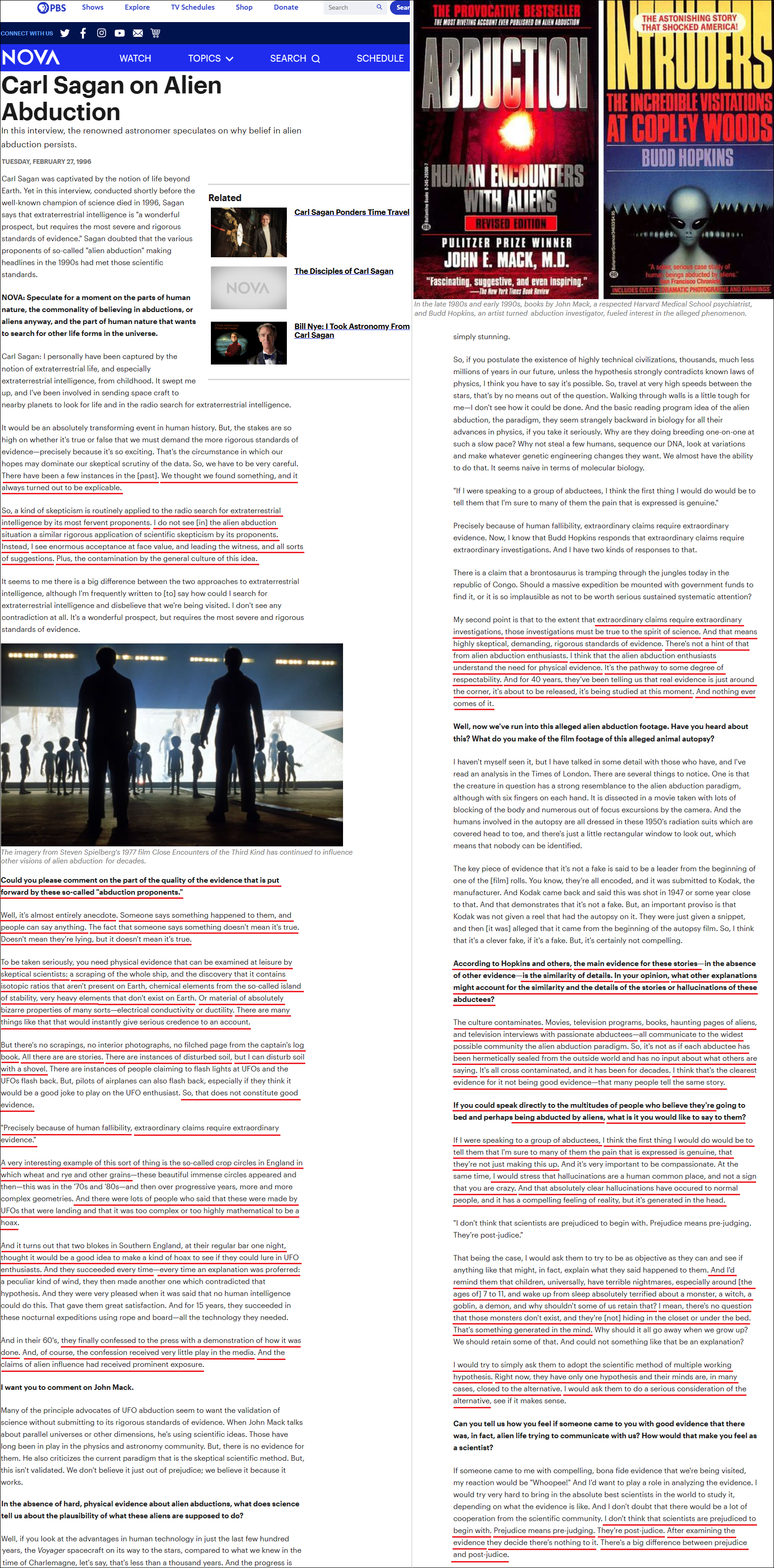Carl Sagan's "Baloney Detection Kit"
Posted: Fri Apr 18, 2025 6:53 am
When seeking a truthful, rational answer on the 'Holocaust', a sound methodology aimed at seeing through the "noise" and "baloney" should help determine the bare facts and strive toward objectively valid conclusions. So, who can we trust as credible source in telling us how we should approach some of life and history's hardest questions?
Enter Carl Sagan. The "science man" of a generation and beyond, father figure, and all-around likeable genius, philosopher, and more. Sagan is known by many as an "era’s greatest patron saint of reason and critical thinking". So, what is his approach to sifting out bullshit (or "rubbish", for my friends across the pond)?
Here are Sagan's nine key tools to steer clear of "clueless guile and deliberate manipulation":
Sagan himself comes from a Jewish family background and I have yet to search his own views on the 'Holocaust' but, let it suffice to say, his methodology on "baloney detection" speaks for itself.
(Source: https://www.themarginalian.org/2014/01/ ... arl-sagan/)
________________________________________
Enter Carl Sagan. The "science man" of a generation and beyond, father figure, and all-around likeable genius, philosopher, and more. Sagan is known by many as an "era’s greatest patron saint of reason and critical thinking". So, what is his approach to sifting out bullshit (or "rubbish", for my friends across the pond)?
Here are Sagan's nine key tools to steer clear of "clueless guile and deliberate manipulation":
Be honest: how many of these boxes would you have to check, with regard to the 'Holocaust' orthodoxy vs revisionism?
- Wherever possible there must be independent confirmation of the “facts.”
- Encourage substantive debate on the evidence by knowledgeable proponents of all points of view.
- Arguments from authority carry little weight — “authorities” have made mistakes in the past. They will do so again in the future. Perhaps a better way to say it is that in science there are no authorities; at most, there are experts.
- Spin more than one hypothesis. If there’s something to be explained, think of all the different ways in which it could be explained. Then think of tests by which you might systematically disprove each of the alternatives. What survives, the hypothesis that resists disproof in this Darwinian selection among “multiple working hypotheses,” has a much better chance of being the right answer than if you had simply run with the first idea that caught your fancy.
- Try not to get overly attached to a hypothesis just because it’s yours. It’s only a way station in the pursuit of knowledge. Ask yourself why you like the idea. Compare it fairly with the alternatives. See if you can find reasons for rejecting it. If you don’t, others will.
- Quantify. If whatever it is you’re explaining has some measure, some numerical quantity attached to it, you’ll be much better able to discriminate among competing hypotheses. What is vague and qualitative is open to many explanations. Of course there are truths to be sought in the many qualitative issues we are obliged to confront, but finding them is more challenging.
- If there’s a chain of argument, every link in the chain must work (including the premise) — not just most of them.
- Occam’s Razor. This convenient rule-of-thumb urges us when faced with two hypotheses that explain the data equally well to choose the simpler.
- Always ask whether the hypothesis can be, at least in principle, falsified. Propositions that are untestable, unfalsifiable are not worth much. Consider the grand idea that our Universe and everything in it is just an elementary particle — an electron, say — in a much bigger Cosmos. But if we can never acquire information from outside our Universe, is not the idea incapable of disproof? You must be able to check assertions out. Inveterate skeptics must be given the chance to follow your reasoning, to duplicate your experiments and see if they get the same result.
Sagan himself comes from a Jewish family background and I have yet to search his own views on the 'Holocaust' but, let it suffice to say, his methodology on "baloney detection" speaks for itself.
(Source: https://www.themarginalian.org/2014/01/ ... arl-sagan/)
________________________________________
